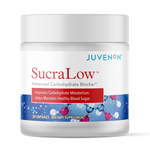Circulation support is essential for maintaining optimal health and vitality, especially as we age. Poor circulation can lead to a range of symptoms, including cold hands and feet, numbness, and muscle weakness, all of which can hinder daily life. Fortunately, there are effective methods to improve blood flow and improve your overall well-being without needing drastic lifestyle changes. Here are some quick tips for circulation support:
- Keep your legs liftd to use gravity in helping blood return to the heart.
- Stay active with exercises like walking or yoga to stimulate circulation.
- Drink more water to maintain blood volume and support fluid balance.
- Eat a healthy diet rich in fruits and vegetables to nourish the circulatory system.
- Wear compression stockings to reduce swelling and improve blood flow.
I'm Michelle M. Henson. With over two decades of experience in crafting impactful content on health and wellness, I specialize in providing scientifically-backed insights into circulation support. Let’s dive deeper into understanding how you can boost your blood flow effectively.
Circulation support terms to remember: - basic life support procedures support breathing and circulation - best circulation and vein support supplement - circulation and vein support for healthy legs
Understanding Circulation Support
Circulation support is all about helping your blood move smoothly through your body. This is crucial because blood carries oxygen and nutrients to every cell. When blood flow is optimal, your organs and tissues get the oxygen they need to function well.
How It Works
Your heart pumps blood through a network of blood vessels. These vessels include arteries, veins, and capillaries. Arteries carry oxygen-rich blood away from the heart, while veins bring it back. For this system to work efficiently, your blood vessels need to be flexible and clear of blockages.
Why Oxygen Delivery Matters
Oxygen delivery is a key part of circulation support. When your blood flow is strong, oxygen is delivered more effectively to your muscles and organs. This keeps your body energized and healthy. Poor circulation can lead to fatigue and other health issues because your cells aren't getting the nutrients they need.
How to Support Your Circulation
-
Stay Active: Regular exercise helps keep your blood vessels flexible and improves blood flow. Activities like walking and yoga are great for boosting circulation.
-
Hydrate: Drinking enough water ensures that your blood stays fluid and moves easily through your vessels.
-
Eat Well: A diet rich in fruits, vegetables, and whole grains supports your circulatory health. Foods like beets and leafy greens are particularly beneficial because they help widen blood vessels.
-
Consider Supplements: Some people find that supplements can support circulation. Ingredients like L-arginine and omega-3 fatty acids are known to improve blood flow.
Understanding how circulation works and what you can do to support it is the first step toward better health. By making small changes, you can improve your circulation and feel more energized and alert every day.

Next, we'll explore five proven methods to improve your circulation and keep your blood flowing smoothly.
5 Proven Methods to Improve Circulation
Improving circulation is key to keeping your body healthy and energized. Here are five methods that can make a real difference:
Keep Your Legs Lifted
Gravity plays a big role in blood flow. When you lift your legs above heart level, gravity helps push blood back to your heart. This can reduce swelling and improve circulation in your lower body. Try propping your legs on a pillow while lying down or using a footrest when sitting. Aim for 15 minutes a few times a day.
Stay Active
Exercise is one of the best ways to boost circulation. Activities like walking, swimming, and yoga get your heart pumping and blood moving. The NHS recommends 150 minutes of moderate-intensity exercise each week. This type of exercise makes you warm and slightly out of breath, but you can still chat with a friend. Even simple actions like wriggling your toes or rotating your ankles can help if you've been sitting for a while.
Drink More Water
Hydration is crucial for blood flow. Your blood is about half water, so staying hydrated keeps it fluid and easy to circulate. Aim for six to eight glasses of water a day. However, if you have conditions like heart failure, consult your doctor about the right amount for you. Proper fluid intake ensures that your blood volume is optimal, helping nutrients and oxygen reach every part of your body.
Eat a Healthy Diet
A balanced diet is essential for good circulation. The Mediterranean diet, rich in fruits, vegetables, oily fish, and whole grains, is particularly effective. These foods help reduce artery blockages and support heart health. Beets and leafy greens are great choices because they help widen blood vessels, improving blood flow.
Wear Compression Stockings
Compression stockings can be a helpful tool for improving circulation, especially if you experience swelling. These tight socks squeeze your legs, encouraging blood to move back up to your heart. However, it's important to get medical advice to ensure you have the right size and type, as ill-fitting stockings can cause discomfort.
By incorporating these methods into your daily routine, you can significantly improve your circulation and enjoy better overall health.
Next, we'll explore lifestyle changes that can further support your circulation.
Lifestyle Changes for Better Circulation
Improving your circulation isn't just about quick fixes—it's about making lasting lifestyle changes. Here are some key areas to focus on:
Smoking Cessation
Smoking is a major enemy of good circulation. The chemicals in cigarettes damage your blood vessels, making it harder for blood to flow smoothly. Quitting smoking can greatly improve your circulation support by reducing the risk of artery blockages and improving blood flow throughout your body.

Blood Pressure Control
Keeping your blood pressure in check is crucial for healthy circulation. High blood pressure can damage your arteries, making blood flow difficult.
Regular monitoring and maintaining a healthy lifestyle can help control your blood pressure.
Incorporate a diet low in salt, and rich in fruits and vegetables, and engage in regular exercise to keep your heart and blood vessels in top shape.
Alternatively, if you are looking for a supplement to help you recover control over your blood pressure quickly, you can try the Blood Pressure Protocol.
It’s a doctor-approved supplement that combines the two most efficient supplements for blood pressure support.
Click here to explore its benefits and get 40% off!
Stress Management
Stress can constrict your blood vessels and increase your heart rate, which negatively impacts circulation. Finding ways to manage stress—like practicing yoga, meditation, or deep breathing exercises—can help keep your blood vessels relaxed and improve circulation.

By focusing on these lifestyle changes, you can make a significant impact on your circulation and overall health. These changes not only improve blood flow but also improve your quality of life.
Next, we'll address some frequently asked questions about circulation support.
Frequently Asked Questions about Circulation Support
How do you fix poor circulation?
Improving poor circulation involves a few simple but effective strategies:
-
Elevation: Elevating your legs can help blood flow back to your heart. Try propping your feet up on a pillow when sitting or lying down. This uses gravity to assist your circulation.
-
Activity: Regular physical activity, like walking or yoga, keeps your blood moving. Even short walks can make a big difference in improving circulation.
-
Hydration: Drinking enough water is essential. It helps maintain blood volume and ensures nutrients are delivered efficiently throughout your body.
What is the best supplement for circulation?
When it comes to supplements for boosting circulation, some options stand out:
-
B Vitamins: These vitamins, especially B6 and B12, are crucial for blood health. They help prevent anemia, which can improve circulation.
-
Herbal Supplements: Herbs like ginkgo biloba and garlic are known for their potential benefits in supporting blood flow. They may help widen blood vessels and improve circulation.
-
BloodFlow-7®: A nitric oxide booster, ideal for those looking for swift results. Click here to learn more about it and get it up to 50% OFF!
Before starting any supplement, it's wise to consult with a healthcare provider to ensure it's suitable for you.
What are signs of poor circulation?
Recognizing poor circulation is the first step in addressing it. Look for these common signs:
-
Cold Extremities: If your hands and feet often feel cold, it could be a sign that blood isn't reaching them effectively.
-
Numbness: Experiencing numbness in your fingers or toes can indicate restricted blood flow.
-
Muscle Weakness: Weakness or cramping in your muscles, especially after walking, might signal poor circulation.
Being aware of these signs can help you take action early and seek appropriate solutions to improve your circulation.
Conclusion
Healthy circulation is essential for overall well-being. Lifestyle changes such as staying active and eating a balanced diet can contribute to better blood flow.
While these strategies are effective, they often take time and consistency to yield noticeable results.
If you're looking for a more targeted approach, high-quality circulation support supplements can provide an added boost.
Our products are carefully formulated with scientifically backed ingredients to promote optimal blood flow and vascular health.
They offer a convenient and effective complement to your daily routine.
We highly recommend you check out BloodFlow-7®—a doctor-approved nitric oxide booster:
“One of the most effective ways to boost blood flow is by increasing nitric oxide, and BloodFlow-7® does that better than any formula that’s come across my desk.”
-
Dr. Darren Farnesi, M.D.
Click here to see BloodFlow-7® for yourself (and claim up to 50% OFF!)
Whether you’re addressing occasional circulation concerns or seeking ongoing support, integrating the right supplement can help you take control of your vascular health with confidence.






















